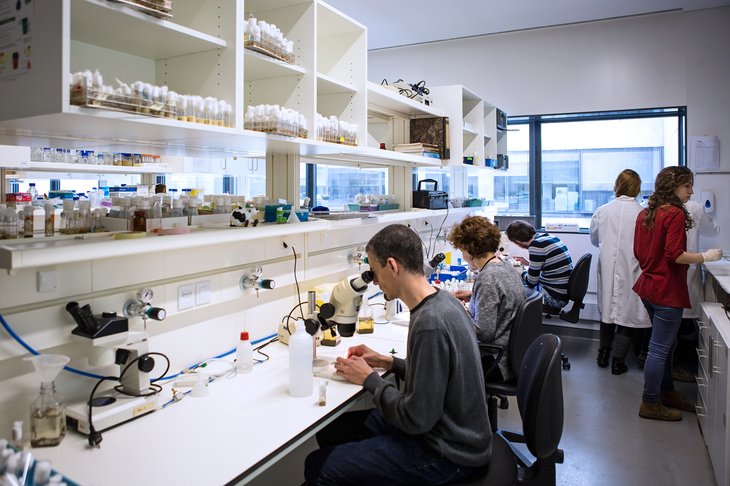Porto researchers find a way to stop the progression of pancreatic cancer
Article

Filipa Brito
A team of researchers from the Instituto de Investigação e Inovação em Saúde (Institute for Research and Innovation in Health) (i3S) at the University of Porto found in cell-to-cell communication a way to stop the progression of pancreatic cancer. The discovery has already been published in one of the most important medical journals in gastroenterology and hepatology.
According to the statement quoted by the Lusa agency, the researchers realized that “in pancreatic tumors, cancer stem cells communicate with the tumor cells, giving them orders for the tumor to grow and resist chemotherapy”.
Although less numerous, “stem cells are the ones that most communicate with other cells. They are, in fact, the ones that command and transmit the guidelines for the tumor to survive”, adds the team.
The i3S researchers focused on this communication, which is done through the secretion of extracellular vesicles. They found that, inside the extracellular vesicles, there is a protein, Agrin, which, “when sent to other cells, drives the tumor to grow and overcome adversities, namely chemotherapy”.
It is that communication that must be prevented, they concluded, and it can be done by using inhibitory molecules. “We used antibodies to block the Agrin protein and we also saw a deceleration in tumor growth”, adds the lead researcher of the team, Sónia Melo.
From here, there may be two ways for research: the “use of drugs to prevent communication between cancer cells” and “antibodies to block the Agrin protein”.
For the researcher, the two methods "have potential as therapeutic solutions to be applied by clinicians to patients with pancreatic cancer, with the aim of halting tumor progression and minimizing therapeutic resistance."
Every year, around 1800 new cases of pancreatic cancer appear in Portugal, being one of the most lethal forms of cancer, as it is usually detected in an advanced stage of the disease.
The I3S work, carried out in collaboration with the Luz and Beatriz Ângelo hospitals, took place within the context of the Porto Comprehensive Cancer Center, a consortium that, in partnership with the IPO, organized the European Research Summit in the Area of Cancer last year. The highlight of the conference was the presentation of the “Porto Declaration on Cancer Research”, which aims to encourage European organizations to reinforce cancer research.